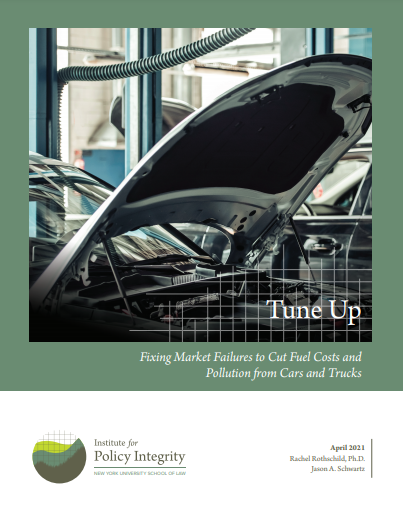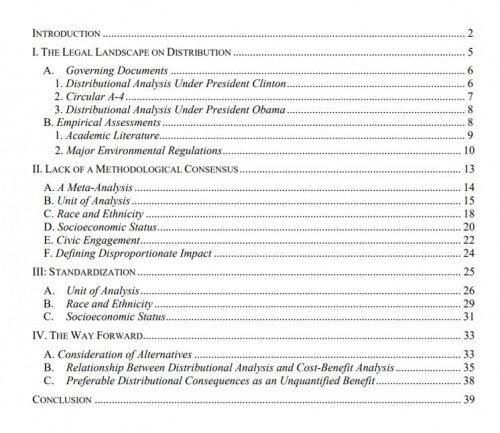-
Comments to FERC Following Technical Conference on Market Design
The Federal Energy Regulatory Commission (FERC) requested input on the expanded minimum offer price rule (Expanded MOPR) in the PJM capacity market, as well as prospective alternative approaches that could replace PJM's Expanded MOPR. We submitted comments addressing the questions posed while drawing attention to reforms that FERC should undertake.
-
Comments on FERC’s Office of Public Participation
The Federal Regulatory Energy Commission (FERC) solicited comment from interested parties on how the Commission should structure their Office of Public Participation to facilitate public engagement. We submitted comments highlighting the potential benefits of public participation by environmental justice communities and identifying best practices that FERC’s Office of Public Participation (OPP) should adopt.
-
Tune Up
Fixing Market Failures to Cut Fuel Costs and Pollution from Cars and Trucks
This report analyzes a key issue in U.S. transportation policy: the energy efficiency gap. We discuss the market failures that cause it, and recommend that the Biden administration continue the longstanding practice of incorporating private fuel savings in any evaluation of the costs and benefits of stronger standards for cars and trucks.
-
Department of Interior Delays, Reassesses Trump-Era Rule on Fossil Fuel Royalty Rates
The Department of Interior delayed the effective date of a Trump-era rule that lowers the royalty burden on corporations extracting fossil fuels on public lands. We provided significant input on the review of the rule, helping guide ONRR’s decision to delay the rule and further examine its legality and impact.
-
Comments to Federal Finance Housing Agency on Climate Risk Disclosure
The Federal Housing Finance Agency requested information on the risks that climate change and natural disasters pose to the housing finance system. We submitted short comments and attached our report with the Environmental Defense Fund, Mandating Disclosure of Climate-Related Financial Risk, which surveys the variety of risks that U.S. corporations, including those in the housing sector, face from climate change’s physical effects and policy and market consequences.
-
Distributional Consequences and Regulatory Analysis
Published in Environmental Law
This article examines what it would take for the Biden effort at incorporating environmental justice into regulatory decisionmaking to succeed where the Clinton and Obama efforts failed. It argues that agencies will need to be provided with clear guidance on the methodologies used to conduct distributional analysis, and that the lack of a standardized approach is part of the reason prior efforts failed. It further argues that agencies will need to take seriously the already existing requirement of analyzing the distributional consequences of different regulatory alternatives. Otherwise, they will never be in a position to answer the key question in this area: when are the better distributional consequences of one alternative sufficient to overcome another alternative’s higher net benefits?
-
Comments on Interior’s Review of Oil and Gas Program
The Department of the Interior is conducting a review of its federal oil and gas leasing program. We submitted comments encouraging the Interior to pursue concurrent action on three fronts.
-
Comments to ACUS on Periodic Review of Agency Regulation
The Committee on Regulation of the Administrative Conference of the United States requested input on best practices for agencies in undertaking periodic review of their existing regulations. We submitted comments providing a number of recommendations.
-
Comments to ACUS on Regulatory Alternatives
The Committee on Regulation of the Administrative Conference of the United States requested input on how agencies should solicit public input on alternatives to rules under consideration. We submitted comments providing a number of recommendations.
-
Comments to USPS on Purchase of Delivery Vehicles
The United States Postal Service (USPS) announced that it will prepare an environmental impact statement for the purchase of a mix of gas-powered and electrict delivery vehicles. We submitted comments on how the USPS can incorporate climate impacts into its review by using the social cost of greenhouse gases. We also urge the USPS to consider the alternative of an all zero-emission fleet.









